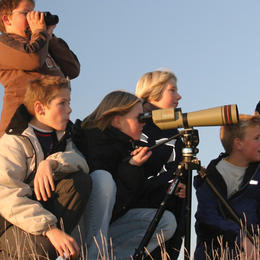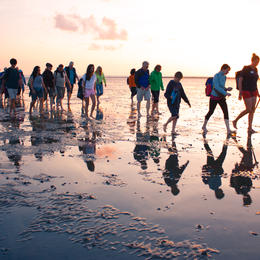
Wadden Sea presented at Asia-Africa workshop on World Heritage and Sustainable Tourism
On invitation of the UNESCO World Heritage Centre, Harald Marencic was invited as panelist at an international UNESCO workshop “South-South Collaboration on World Heritage and Sustainable Tourism” in Hongcun Village, China, from 23 to 24 May 2014. http://whc.unesco.org/en/news/1138
About 25 experts and site managers represented World Heritage sites from China, Laos, India, South Africa, Zambia, Kenya and Cap Verde, as well as experts in marketing communication, and sustainable tourism, attended the 2-day workshop.
Peter Debrine, Senior Programme of the UNESCO World Heritage Sustainable Tourism Program introduced objectives of the programme and the new campaign “People Protecting Places”
The meeting was divided into three interactive sessions where the participants shared experiences and explored new ideas in terms of sustainable tourism management and World Heritage conservation.
The key outcomes included:
- The sharing of international good practice approaches and capacity-building tools to promote, recognize and incentivize sustainable tourism practices and products at and around World Heritage sites
- Exploring new ideas and trends in terms of visitation, connectivity
- Highlighting the importance of World Heritage stakeholders to work together to achieve the goals of sustainable tourism at and around World Heritage sites and what can be achieved
- Identifying potential areas for international cooperation and partnerships and how UNESCO and Zhongkun Group can leverage the new capacity-building facility for promoting south-south cooperation in Hong Village to build on the results of the workshop
The workshop underlined the potential of World Heritage for sustainable regional development. Many cases throughout the world showed that only though a comprehensive protection of the site a benefit for the social-economic development can be achieved for present and future generations.
The Wadden Sea approach was regarded as a convincing one, as it takes the Outstanding Universal Value as a starting point for all communication and marketing activities and as precondition for all stakeholder activities. The workshop also underlined that an emotional connection to World Heritage is necessary to engage local communities and visitors into the protection of World Heritage, for example through innovative educational programmes or through a "story-telling" approach.
The meeting included a technical tour of Hongcun Village and the unveiling ceremony an World Heritage center: the "UNESCO/Zhongkun Group Training Facility for World Heritage Conservation and Sustainable Tourism" (above). This center as the aim to pool the resource and create synergies through cooperation between World Heritage sites in Asia and Africa.
The workshop was organized within the framework of the UNESCO World Heritage and Sustainable Tourism Programme and was the inaugural event associated with the partnership with the Zhongkun Group.



